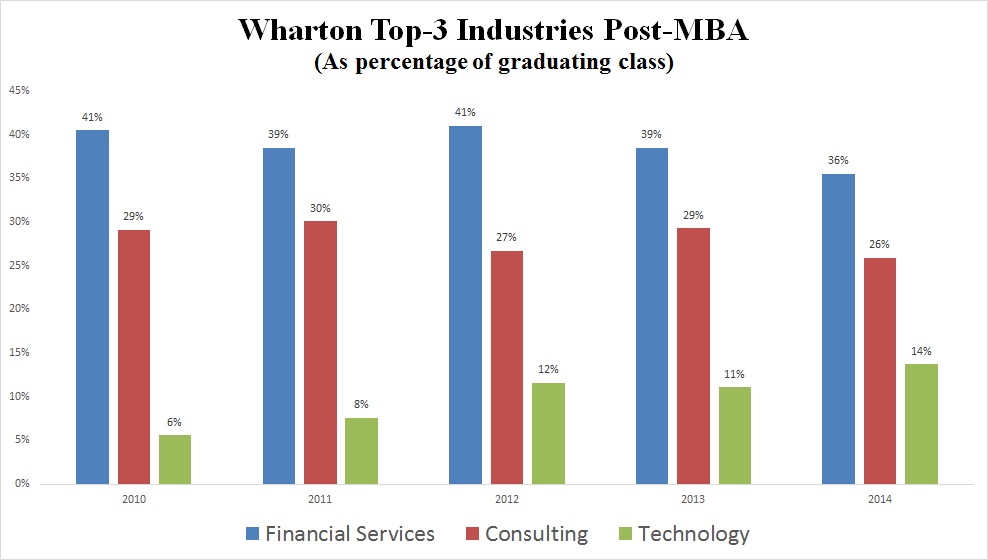“Why do people say ‘outside the box’ when the term ‘outside the box’ is inside the box?” – Marty Kaan
Three and a half years ago, I left the Marine Corps to pursue a passion of mine from undergrad, finance. I became a trader at an investment bank and it was an incredible two years. Ultimately, however, I realized I missed the variety of work the military provided but I didn’t think trading my button downs and loafers back in for cammies and combat boots was the right path towards fulfilling that need. I had several friends who worked as consultants and it had always intrigued me. Returning to school had been in the back of my mind for years – I knew Wharton would be the perfect career accelerator and provide me the ideal platform to transition into a career as a consultant.
Let’s take a step back and talk about what consulting actually is. Consulting is, at its essence, helping companies (clients) solve their toughest problems. Perhaps the company isn’t large enough to employ people full-time to solve such problems and it makes sense to temporarily “outsource” this problem solving capability. Or, perhaps the company is facing a new or unexpected type of challenge and needs the expertise of individuals that in some cases have spent entire careers solving that exact type of challenge. Growing, increasing market share, reducing costs, entering new markets, launching new products, merger and acquisition activity, responding to competitive threats are a sampling of these types of problems. Typically we more specifically call this area “management consulting” and it can include areas such as strategy, operations; and information technology among others. There are also smaller, niche consulting firms that have a more narrow focus, such as marketing or human resources (these firms also recruit Wharton MBA students).
Consultants often, but not always, travel to their clients during the week; Monday to Thursday is the norm. Consulting engagements can be as short as a few weeks to as long as several months or more. Clients’ financial well-being can often depend on consultants’ abilities to solve aforementioned problems so the stakes can be high; the work challenging and at times time-consuming. Much of this time, early on, is spent fully understanding the client, the industry, the problem at hand and numerous other issues. Post-MBA, young consultants, don’t typically yet have the experience base to draw from so they are expected to be exceptionally fast learners, have a passion for knowledge and be able to rapidly adapt to new challenges while synthesizing vast amounts of information. These are the skills consulting firms are looking for: analytical rigor, teamwork skills, ability to communicate effectively, intellectual curiosity and cultural fit within the firm.
If exposure to potentially varied industries and many companies in a fast-paced, team-based environment excites you, consulting may be a good fit and Wharton is the perfect place to take that leap. In addition to serving as a Student Life Fellow along with the other bloggers featured here, I also serve as a Career Fellow, conducting resume review and mock interviews among other things, and as a mentor within the Consulting Club. I bring this up in order to demonstrate that beyond the excellent staff we employ within the Career Management office, there is a wealth of peer-to-peer support that results in a level of preparation I believe is second to none and the high caliber of candidates is consistently communicated back to Wharton by consulting firms. I would never have been successful in my recruiting process without the staff here and my always willing to help classmates.
As the graph below shows, consulting is a very popular and fairly steady over the years (percentage-wise) pursuit following graduation. While “financial services” as a whole still leads the way, it is important to note that includes many sub-sectors such as investment banking, investment management (hedge funds, mutual funds, etc.), private equity and venture capital.

Additionally, here is a nice infographic put together by the Wharton Journal, our campus newspaper (which will hopefully be covered in a later post) based on the most recent recruiting season (my class, the class of 2015):




